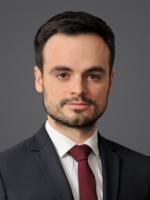On June 18, 2017, and June 29, 2017, Paris and Nantes civil courts (les tribunaux de grande instance) respectively issued opposite rulings interpreting the provisions of Article L. 4614-13 of the French Labor Code.
Pursuant to Article L. 4614-13, an employer can challenge a Committee for Health, Safety and Working Conditions (Comité d'hygiène, de sécurité et des conditions de travail) (CHSCT) decision requesting an expert’s consultation—and the estimated cost of the consultation—within a 15-day period, starting from the time of the CHSCT’s deliberation. (A CHSCT is an employee representatives’ body empowered to set up experts’ consultations in order to protect the health and safety of workers.)
In the cases at hand, the employer had received belatedly (one month after the deliberation in the Paris case and more than four months later in the Nantes case) the letter providing the fee estimate and scope of the expert’s consultation. The issue in each case was whether the date of receipt of the expert’s letter by the employer could be deemed as the starting date of the applicable statute of limitations for challenging the expert’s fee estimate and scope of consultation.
- The court of Paris answered positively, ruling that in this particular situation the starting date of the applicable statute of limitations was the date on which the employer knew the estimated cost of the expert’s consultation.
- On the contrary, the court of Nantes ruled that the starting date of the applicable statute of limitations could not differ from the date of the CHSCT’s deliberation.
If the Nantes court’s ruling is adopted, employers would be well-advised to systematically challenge experts’ positions on the scope and cost of their consultations as a precautionary measure, without knowledge of the fee estimate, in order to avoid undergoing an expensive consultation in the event an expert sends the letter belatedly. Challenging an expert’s fees would also be possible once he or she performed his or her consultation.
If, however, the Paris court’s ruling is adopted, employers’ rights would be preserved, as an employer could initiate proceedings with full knowledge of the costs and scope of an expert’s consultation without being compelled to accept an expensive expert’s consultation.
The Cour de cassation will undoubtedly be called upon to resolve this issue.
Théo Le Port is a law student, currently working as an intern in the Paris office of Ogletree Deakins.





 />i
/>i
